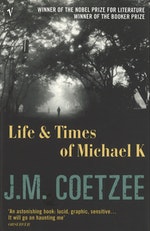
Summertime might be its own cathartic exercise. He had decided he was going to block cruel and violent impulses in every arena of his life – including his love life, I might say – and channel them into his writing, which as a consequence was going to become a sort of unending cathartic exercise. There was an air of seediness about him too, an air of failure.” Even for his lover, Julia, “he had no sexual presence whatsoever.” This, she suggests, is because “his mental capacities, and specifically his ideational faculties, were overdeveloped, at the cost of his animal self.” While Julia knew John Coetzee, he wrote and published his first novel, Dusklands. “He looked out of place, like a bird, one of those flightless birds or like an abstracted scientist who had wandered by mistake out of his laboratory.

(As I manfully resisted the urge throughout to compare the content of the book with Coetzee’s biography.) John Coetzee – as he is called in the book – is not flatteringly depicted. The reader’s temptation when reading Summertime is to try to work out what is brute fact, what is irony, what is something else, but it’s a temptation which should be resisted. The book opens and closes with journal entries, the only time the author (as character) speaks directly.īut to the barbarians, as Zbigniew Herbert has pointed out, irony is simply like salt: you crunch it between your teeth and enjoy a momentary savour when the savour is gone, the brute facts are still there. He does this by stepping aside and reimagining his life in the 1970s from the viewpoints of five people – a lover, a relative, a colleague, and so on – all interviewed by a prospective biographer named Vincent after Coetzee’s death. The joke is: ‘If this is the prime of his life…’, because Coetzee gives us a ruthless self-portrait. Summertime follows them as fictionalised memoirs of Coetzee’s life, and the title is a mordant joke from an author not famed for his wit. Summertime is subtitled Scenes from Provincial Life, which recalls Middlemarch and Madame Bovary, but also aligns it with Coetzee’s earlier books Boyhood and Youth. It’s all because of Summertime, a magnificent book which from the beginning places the reader in Coetzee’s expert care.


… But for me, I think it goes far beyond that.” After a disastrous attempt to review Diary of a Bad Year when I was having a bad month, I have now – third time lucky – reached the stage where I know I will, eventually, have to read all his books. … I mean, I know that’s not profound or nothin’. Coetzee’s work on the basis that I liked Disgrace makes me feel a little like the gorilla in the Far Side cartoon, who says to his friend, “You know, Sid, I really like bananas.


 0 kommentar(er)
0 kommentar(er)
